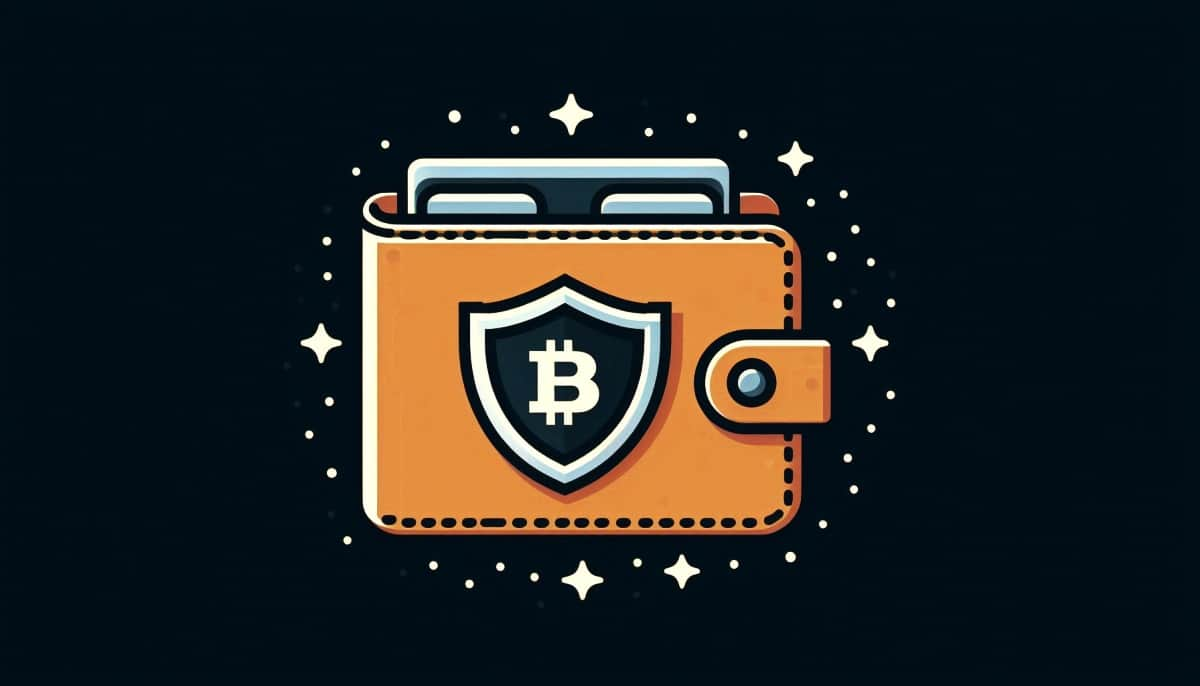Cybersecurity threats in crypto are rising, from the Bybit hack to fake wallets stealing funds. Learn how to protect your assets with secure wallets and best practices.
Cryptocurrency has revolutionized finance forever, but it has also exposed users to cybercriminals and scams. From large-scale exchange breaches to malicious wallets sneaking into app stores, the risks are growing. If you’re in crypto, securing your assets is no longer optional; it’s a necessity.
The Bybit Hack: A Wake-Up Call
Just recently, Bybit, one of the world’s largest cryptocurrency exchanges, suffered a massive security breach. Hackers from the North Korean Lazarus Group managed to steal $1.4 billion in assets, once again proving that even well-established platforms are vulnerable. While Bybit has since taken action to reinforce security, this incident clearly shows why leaving funds on exchanges is a risk.
But, it’s not just ByBit. No exchange is “unhackable”. Even giants like Binance, KuCoin, and Mt. Gox have suffered devastating hacks in the past. These breaches highlight the importance of self-custody; if you don’t control your private keys, you don’t fully own your crypto.
Malicious Wallets: A Silent but Growing Threat
While exchange hacks grab headlines, a more stealthy and growing problem is the rise of fake and malicious crypto wallets on iOS and Google Play Store. These malicious apps pose as legitimate wallets but are designed to steal funds the moment users deposit their assets.
Researchers have found a surge in these fraudulent wallets, often disguised as clones of popular apps. They look identical to trusted wallets like MetaMask, Trust Wallet, or Coinbase Wallet, tricking unsuspecting users into transferring their funds straight to hackers.
This issue isn’t just limited to scam wallets, even some browser extensions and fake dApps have been caught injecting malicious scripts to drain wallets. The takeaway? Never download a crypto wallet without verifying its authenticity through the official website or developer page.
A Booming Crypto Market Means More Targets for Hackers
According to researchers at Best Wallet, a popular crypto wallet, as of January 2025, approximately 562 million people worldwide own cryptocurrencies, with 28% of adults in the United States, equating to 65 million people, holding crypto.
With such rapid adoption, hackers have more targets than ever. From phishing scams to SIM swap attacks, crypto theft is at an all-time high. If you own crypto, taking cybersecurity seriously is no longer an option, it’s a must.
How to Protect Your Crypto From Hacks & Scams
Securing your cryptocurrency is essential in an era of increasing cyber threats. Here are some must-follow security tips to protect your digital assets from hacks and scams.
1. Use a Reliable Crypto Wallet
One of the safest ways to store your crypto is by using a self-custodial wallet. Avoid keeping funds on exchanges, as they are frequent targets for hackers. Instead, opt for hardware wallets like Ledger, Trezor, or Coldcard, which provide offline storage and enhanced security.
If you prefer a mobile or desktop wallet, stick to reputable providers such as MetaMask, Trust Wallet, or Exodus. However, before downloading any wallet, always verify the source; ensure it’s from the official website or developer page to avoid fake apps.
2. Enable Multi-Factor Authentication (MFA)
Adding an extra layer of security with Multi-Factor Authentication (MFA) can protect your exchange and wallet accounts. Use Google Authenticator, YubiKey, or similar tools to prevent unauthorized access.
Avoid using SMS-based 2FA, as it’s vulnerable to SIM swap attacks, where hackers hijack your phone number to gain control of your accounts.
3. Beware of Phishing Attacks
Phishing remains one of the most common tactics used by cybercriminals. Hackers often impersonate wallet providers or exchanges, tricking users into entering their credentials on fake websites or downloading malware-infected software.
To stay safe, always type the official website URL yourself instead of clicking on links sent via email or messages. If an offer or security alert seems suspicious, double-check with the official source before taking any action.
4. Keep Private Keys & Seed Phrases Offline
Your private keys and seed phrases are the most critical elements of your crypto security. Never store them digitally or on cloud storage, as they can be easily compromised. Instead, write them down on paper and keep them in a secure location.
For even greater security, consider using metal backup storage instead of paper. This protects your seed phrase from damage due to fire, water, or physical deterioration.
5. Regularly Update Your Security Software
Keeping your wallet software, antivirus, and operating system updated is crucial for patching security vulnerabilities. Cybercriminals exploit outdated software to gain access to systems, so regular updates help keep your assets safe.
Additionally, consider using privacy tools like VPNs and hardware firewalls to enhance your online security. These tools help protect against tracking, phishing attempts, and potential malware attacks targeting crypto users.
The Bybit hack and the rise of malicious crypto wallets show that crypto security is more critical than ever. If you own crypto, you’re a target, but with the right precautions, you can keep your funds safe.
Remember: Not your keys, not your crypto. Invest in a secure, reliable wallet, stay cautious with online downloads, and always double-check security measures before making transactions.
Editor’s Note: This article is for informational purposes only and does not constitute investment or financial advice. Always do your own research before making financial decisions.









